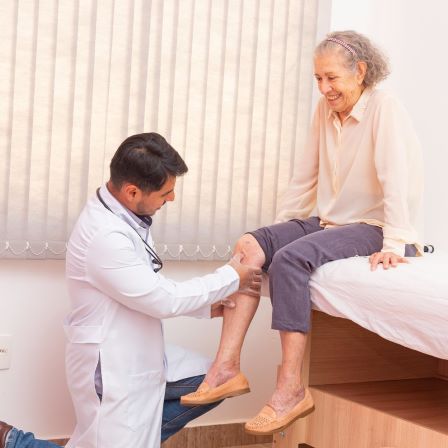Knee arthritis is a condition that occurs when the cartilage in the knee joint wears down, causing pain, stiffness, and swelling. There are three main types of knee arthritis.

Here are some common causes of knee arthritis:
The symptoms and signs of arthritis can differ among individuals, but typically involve:

When a patient visits us with knee pain, our consultant performs a comprehensive assessment to determine the cause. We believe that examining the entire body, not just the affected joint, can aid in identifying any underlying medical conditions that may impact treatment.
Furthermore, understanding a patient's activity level and goals is crucial in developing an effective treatment plan. During the physical examination, we assess for any abnormalities, joint swelling or fluid, and evaluate the muscle strength and range of motion. In some cases, our consultants may recommend diagnostic tests such as X-rays, MRIs, CT scans, or ultrasounds to aid in diagnosis.